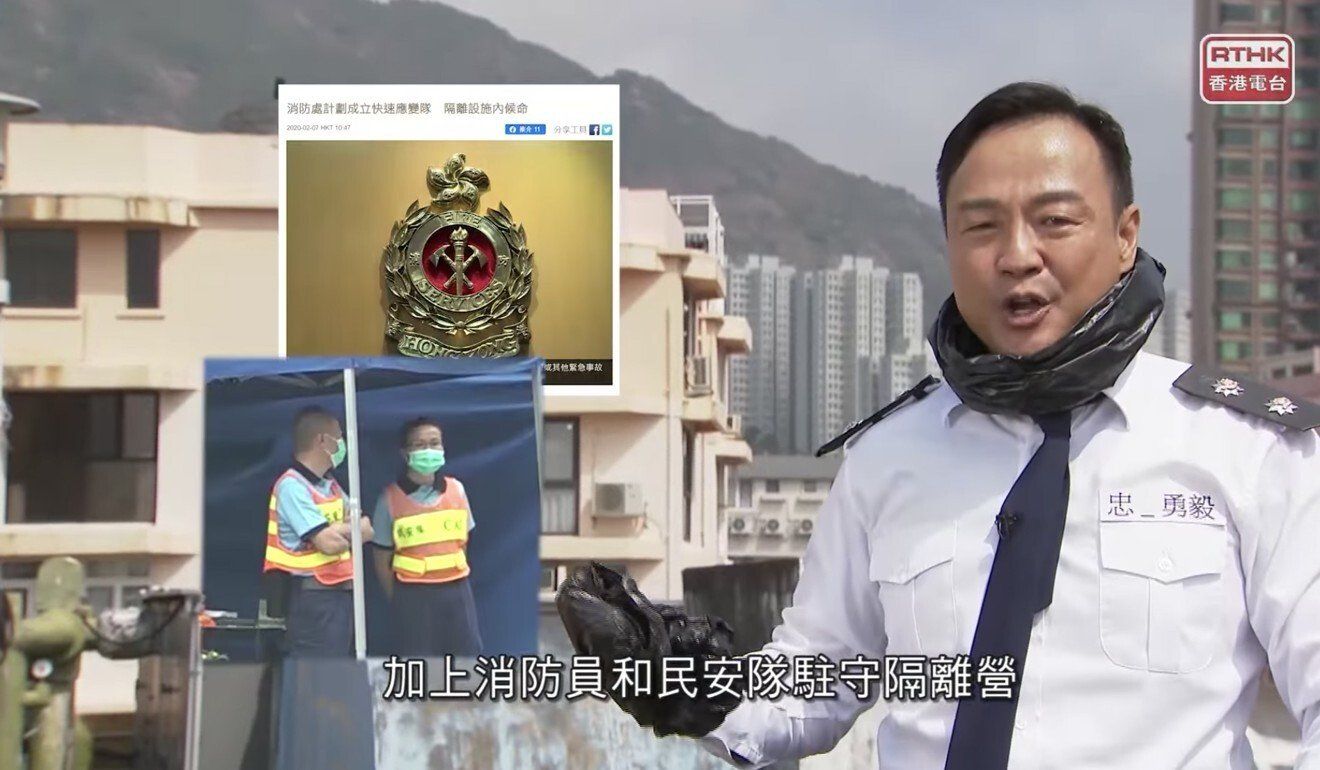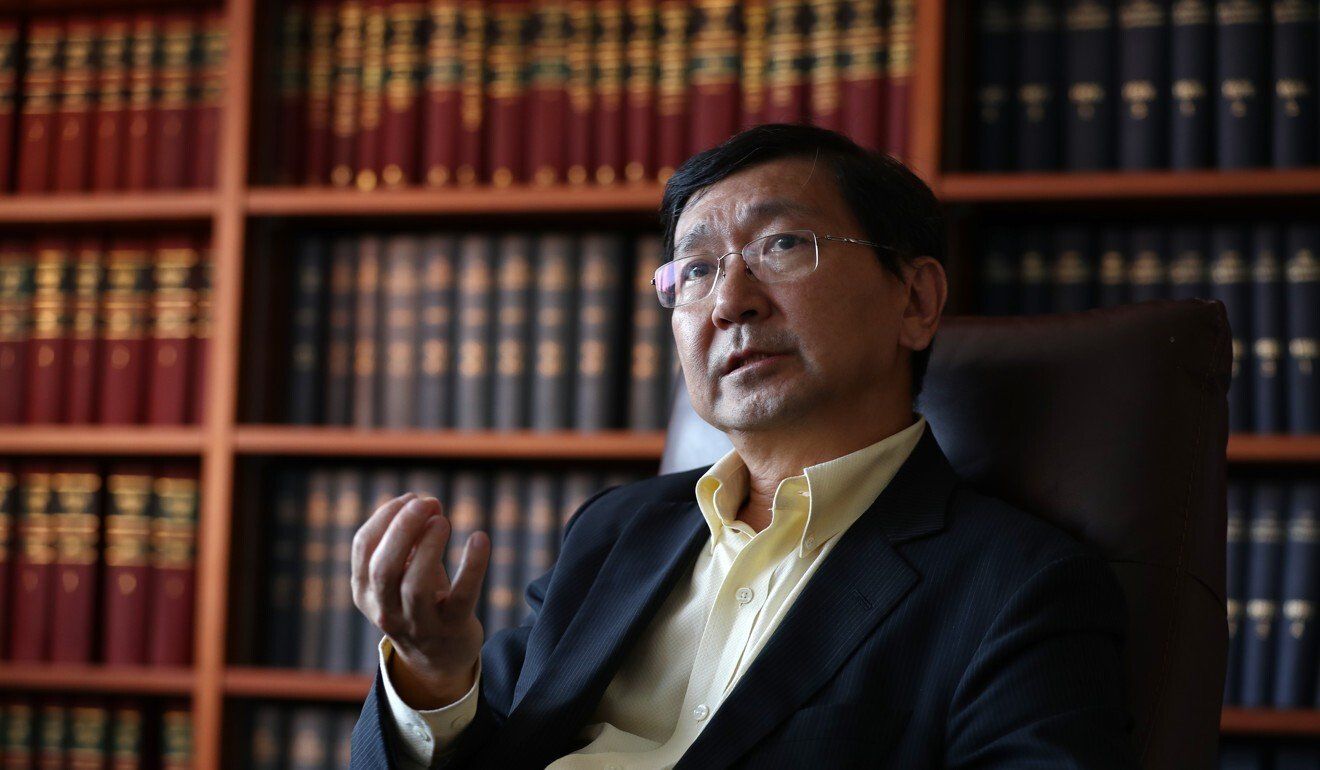RTHK Programme Staff Union and Hong Kong Journalists Association challenging decision that episode of Headliner violated TV Programme Code.
RTHK has the right to freedom of expression, according to lawyers challenging the communications watchdog’s decision to warn the public broadcaster about its portrayal of the Hong Kong police in a controversial satire last year.
Honorary senior counsel Johannes Chan Man-mun, for RTHK’s Programme Staff Union and the Hong Kong Journalists Association, on Monday told the High Court that the Communications Authority made an unlawful decision on May 19, 2020 when it misinterpreted and misapplied its TV Programme Code and unjustifiably interfered with the broadcaster’s freedom of expression.
In that decision, the authority ruled an episode of RTHK’s Headliner about the government’s response to Covid-19, aired on February 14 of the same year, violated the code and warned the broadcaster to observe the relevant provisions more closely.
RTHK, which is not a party to the present judicial review, subsequently apologised.
 The Headliner episode in question was broadcast on February 14 last year.
The Headliner episode in question was broadcast on February 14 last year.
Headliner was one of RTHK’s most popular programmes, known for its satirical nature and humorous tone.The show ran for more than 30 years, until it was suspended shortly after removing the February 14 episode and airing its final one on June 19, last year.
The episode, which was partly shown in court, had implied that police hoarded masks and other personal protective equipment at the expense of the medical sector during the coronavirus pandemic. One host also parodied an officer, emerging from a large refuse bin, with his neck and hands wrapped in rubbish bags.
It drew more than 3,000 complaints, with the authority finding three aspects substantiated, concluding it was partly inaccurate, denigrating or insulting to police, and that it had failed to express a sufficiently broad range of views expected of a personal views programme.
The public broadcaster has repeatedly been caught in the crossfire of the city’s political wrangling since social unrest rocked Hong Kong in 2019, with the pro-Beijing camp accusing it of siding with the opposition and being too critical of Beijing, the government and police.
At issue was whether the authority had lawfully exercised its power in determining the satirical programme was in breach of the code.
“This is an important case which will define the scope and limits of freedom of expression of civil society in Hong Kong,” Chan said.
On Monday, he argued the authority was bound by the Hong Kong Bill of Rights and the Basic Law, the city’s mini-constitution, to respect the right to freedom of expression, which RTHK must enjoy, contrary to the government’s contention that its departments had no constitutional freedoms that could be infringed and subjected to judicial review.
 Johannes Chan.
Johannes Chan.
Chan said the government’s argument was misconceived because RTHK was both a government department and a public broadcaster expected to discharge its functions and exercise editorial independence “without fear or favour”.
The counsel argued that the authority had failed to take into account the satirical nature of the show when it misclassified it as a personal views programme and required producers to comply with standards that were inappropriate for the genre, thereby restricting creativity and freedom of expression.
He submitted that those in power had to have a high degree of tolerance for expression in civil society, including satire, which had been recognised by the courts as an artistic form of expression combining social commentary with drama and entertainment.
Chan also argued that the authority had wrongly characterised police as marginalised members of a “social status” protected by the code, and questioned if the impugned episode was truly denigrating or insulting when it only made fun of the force with cynical but mild jokes that reflected certain public sentiments.
In particular, he said there was nothing unusual with someone coming in and out of a rubbish bin as seen in the parody, and the act could be interpreted as someone living in his own world with little care for the outside world, like Oscar the Grouch in Sesame Street.
“The fact that it is open to a number of interpretations … signifies that the level of offensiveness has not gone beyond the acceptable level of tolerance,” he added. “If [Headliner’s] purpose was to denigrate police, it would have been worse. It would put police in the sewage or landfill.”
The authority will respond on Tuesday, when the two-day hearing continues before Mr Justice Anderson Chow Ka-ming.















